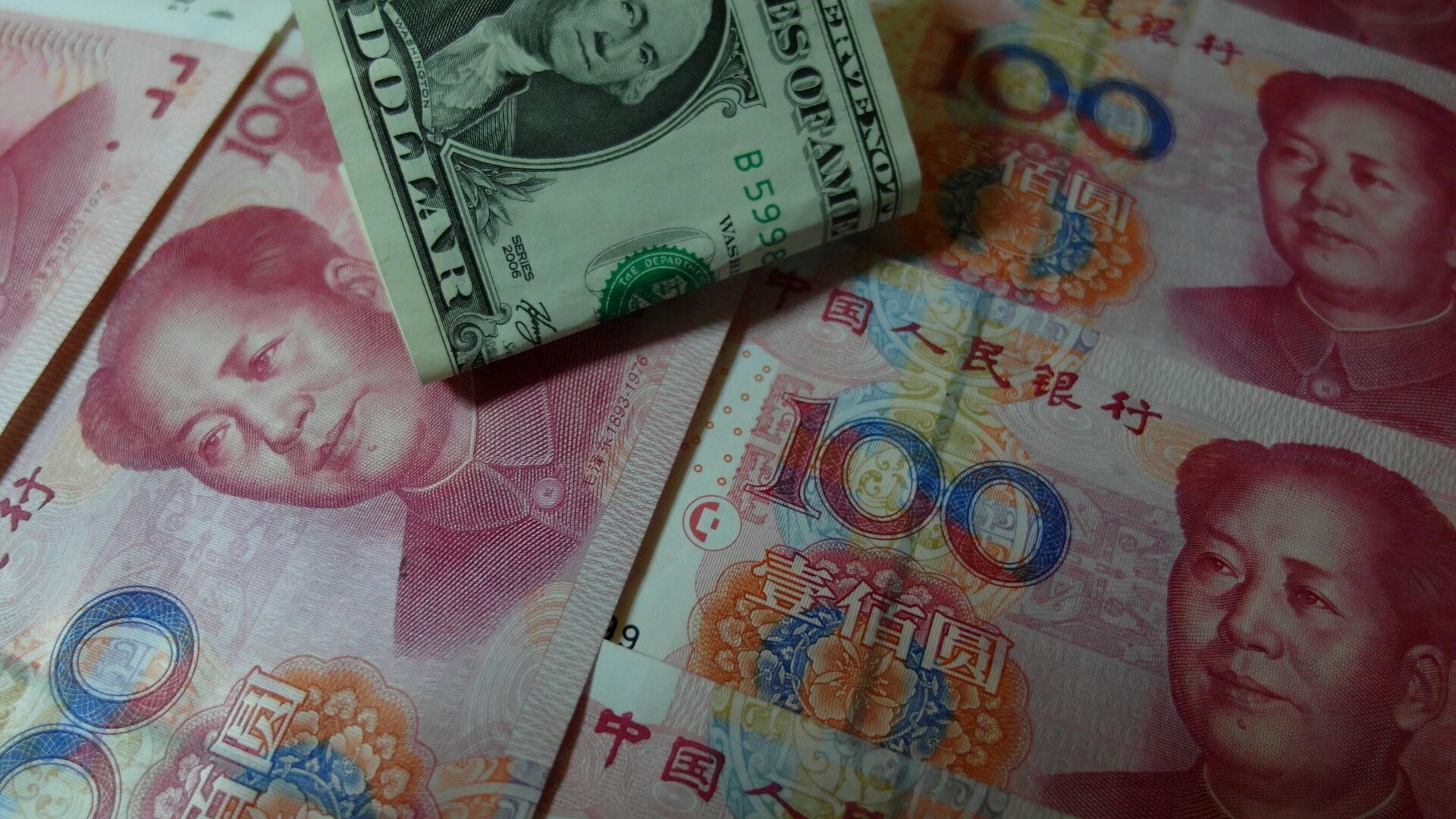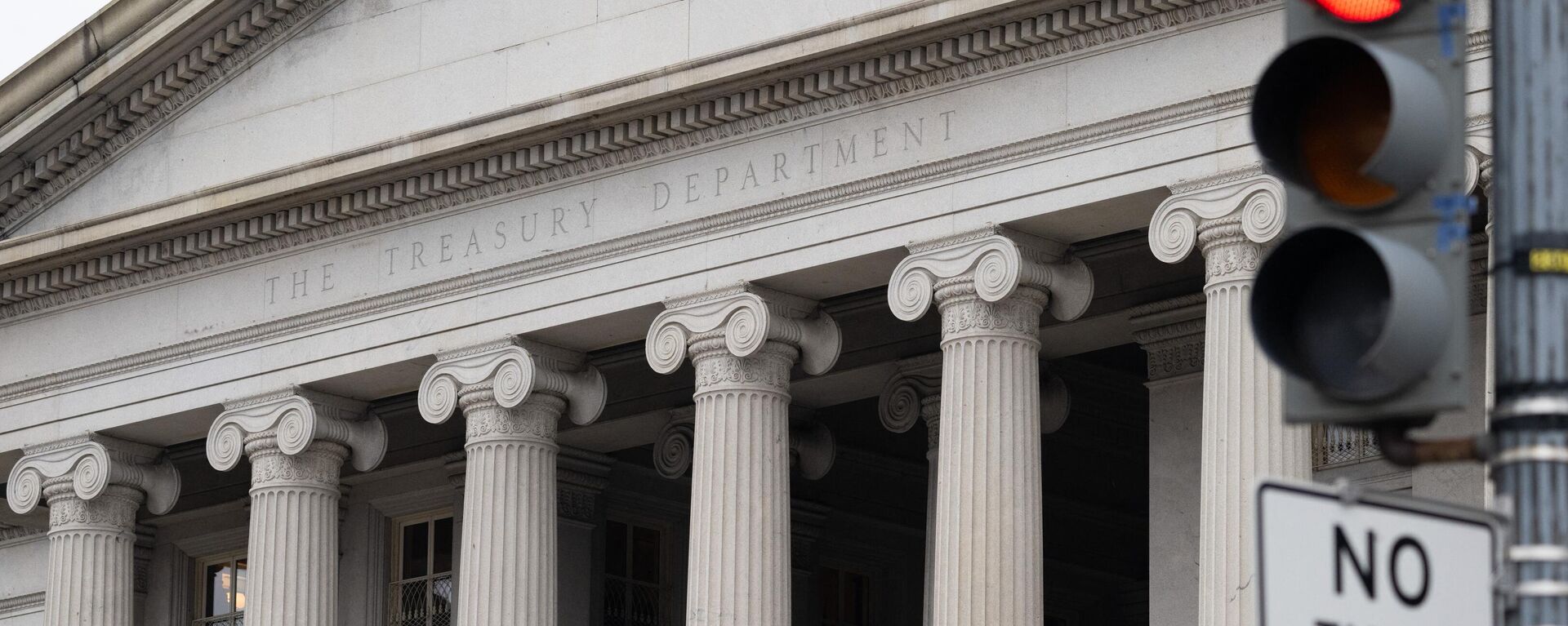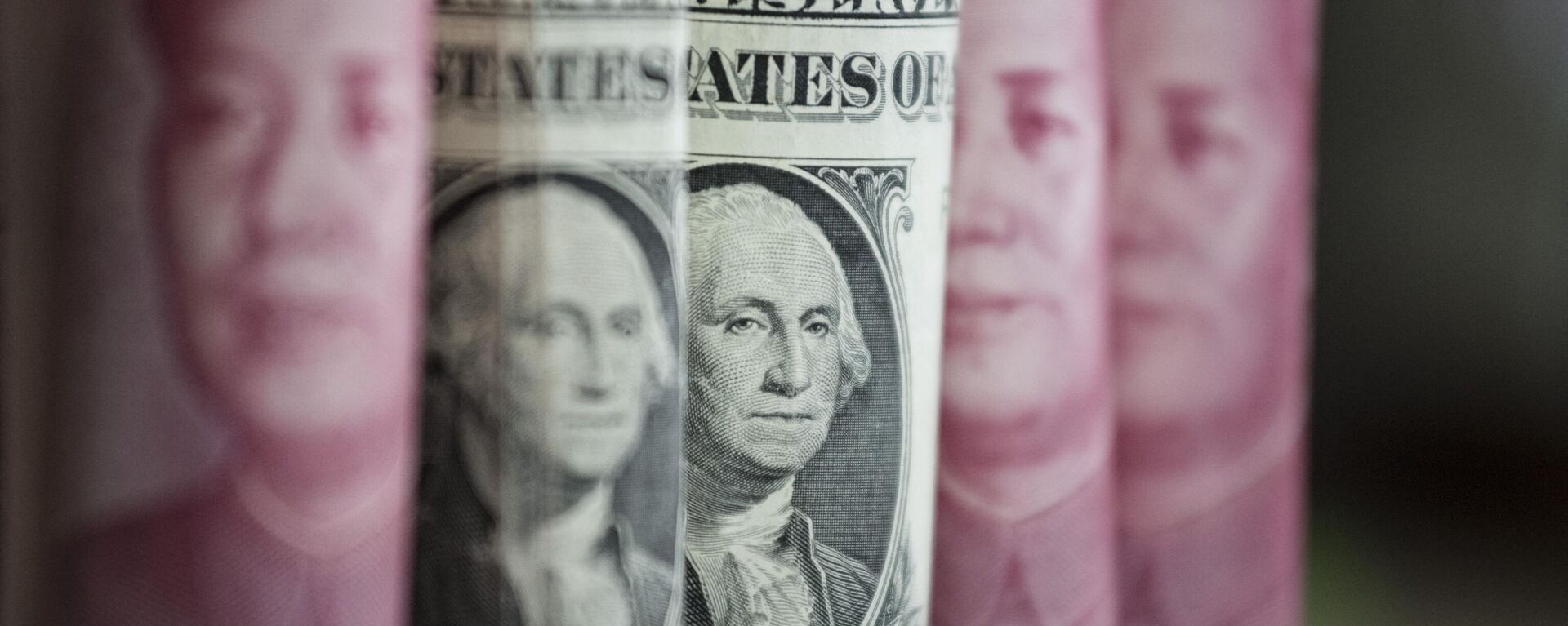https://sputnikglobe.com/20230511/will-world-see-accelerated-de-dollarization-if-us-defaults-on-debt--1110262209.html
Will World See Accelerated De-Dollarization if US Defaults on Debt?
Will World See Accelerated De-Dollarization if US Defaults on Debt?
Sputnik International
No country will be able to capitalize on a potential US default, and even if a certain nation manages to benefit, it will be a Pyrrhic victory, Marc Ostwald, chief economist at ADM Investor Services International, told Sputnik.
2023-05-11T14:11+0000
2023-05-11T14:11+0000
2023-05-11T14:16+0000
economy
us
joe biden
republicans
democrats
default
debt crisis
government
us debt ceiling crisis
https://cdn1.img.sputnikglobe.com/img/07e7/05/0b/1110262742_0:257:2730:1793_1920x0_80_0_0_5296071299a206aeb7ba589eae4acc2c.jpg
Treasury Secretary Janet Yellen told a G7 finance leaders meeting in Niigata on Thursday that a possible default in America "would spark a global downturn" and "would also risk undermining US global economic leadership and raise questions about our ability to defend our national security interests."She earlier warned that her country might run out of options to pay its debt obligations already on June 1 if congressional lawmakers fail to act and raise the country's debt ceiling. The US government reached its statutory borrowing limit in January and has since been operating "extraordinary measures" to avoid defaulting on its debt.He suggested that when it comes to the US dollar, it "obviously would create a lot of ructions in terms of its interest rate curves."When asked to explain why a US default could negatively affect the dollar’s status, Ostwald said that with the world's liabilities denominated in dollars, in case of default "people start to look at it and say, do I actually want to borrow in a currency which is so volatile?"Touching upon a scenario of a potential default affecting Washington’s ability to service its massive trade deficit, he predicted that "it would just make things a lot more costly and therefore probably a lot more inflationary."He added that in terms of foreigners buying US debt, there are at least two aspects regarding the matter.The expert argued that no country would benefit from a potential US default, and that if anyone capitalizes, "it will be very much a Pyrrhic victory."Ostwald was echoed by Dr. Radhika Desai, a professor at the University of Manitoba, director of the Geopolitical Economy Research Group, and author of Capitalism, Coronavirus and War: A Geopolitical Economy, who suggested that the US debt ceiling standoff may facilitate the process of de-dollarization.On the possibility of President Joe Biden and Republican House Speaker Kevin McCarthy arriving at a political accommodation over the debt ceiling, the professor claimed that "actually if they could make a deal, they would" and that "The problem is they feel the pull of their respective social bases" ahead of the 2024 US presidential election."That is to say they feel that if either of them is seen to compromise, then they will be punished electorally in the coming congressional and presidential elections. So even if they personally wanted to, they had their hands quite a bit tied" in terms of reaching a consensus on the debt ceiling, Desai concluded.If you want to know what Ostwald thinks of the repercussions of de-dedollarization, click here.
https://sputnikglobe.com/20230508/what-should-americans-brace-for-on-the-brink-of-default-1110191569.html
https://sputnikglobe.com/20230417/inevitable-de-dollarization-which-countries-are-moving-away-from-greenback-1109592646.html
Sputnik International
feedback@sputniknews.com
+74956456601
MIA „Rossiya Segodnya“
2023
Oleg Burunov
https://cdn1.img.sputnikglobe.com/img/07e4/09/0b/1080424846_0:0:2048:2048_100x100_80_0_0_3d7b461f8a98586fa3fe739930816aea.jpg
Oleg Burunov
https://cdn1.img.sputnikglobe.com/img/07e4/09/0b/1080424846_0:0:2048:2048_100x100_80_0_0_3d7b461f8a98586fa3fe739930816aea.jpg
News
en_EN
Sputnik International
feedback@sputniknews.com
+74956456601
MIA „Rossiya Segodnya“
Sputnik International
feedback@sputniknews.com
+74956456601
MIA „Rossiya Segodnya“
Oleg Burunov
https://cdn1.img.sputnikglobe.com/img/07e4/09/0b/1080424846_0:0:2048:2048_100x100_80_0_0_3d7b461f8a98586fa3fe739930816aea.jpg
possible us default, us debt ceiling crisis, democrats-republicans row over debt ceiling, looming de-dollarization, us government, us president joe biden, is us in default, what is us default, can us declare bankruptcy, is deafault in us possible
possible us default, us debt ceiling crisis, democrats-republicans row over debt ceiling, looming de-dollarization, us government, us president joe biden, is us in default, what is us default, can us declare bankruptcy, is deafault in us possible
Will World See Accelerated De-Dollarization if US Defaults on Debt?
14:11 GMT 11.05.2023 (Updated: 14:16 GMT 11.05.2023) No country will capitalize on a potential US default, and even if a certain nation manages to benefit, it will be a Pyrrhic victory, Marc Ostwald, chief economist at ADM Investor Services International, told Sputnik.
Treasury Secretary Janet Yellen told
a G7 finance leaders meeting in Niigata on Thursday that a possible default in America "would spark a global downturn" and "would also risk undermining US global economic leadership and raise questions about our ability to defend our national security interests."
She earlier warned that her country might run out of options to pay its debt obligations already on June 1 if congressional lawmakers fail to act and raise
the country's debt ceiling. The US government reached its statutory borrowing limit in January and has since been operating "extraordinary measures" to avoid defaulting on its debt.
“The fact that the US can't deal with this anachronistic debt ceiling is a big problem," Ostwald said.
He suggested that when it comes to
the US dollar, it "obviously would create a lot of ructions in terms of its interest rate curves."
When asked to explain why a US default could negatively affect the dollar’s status, Ostwald said that with the world's liabilities denominated in dollars, in case of default "people start to look at it and say, do I actually want to borrow in a currency which is so volatile?"
Touching upon a scenario of
a potential default affecting Washington’s ability to service its massive trade deficit, he predicted that "it would just make things a lot more costly and therefore probably a lot more inflationary."
"On the other hand, the US is actually in many ways capable of being far more self-sufficient than it actually is. But in a world where the US is a key cornerstone of global trade, the idea that it [America] would become much more isolationist as a result of such a move is obviously a major negative," the ADM Investor Services International chief economist noted.
He added that in terms of foreigners buying US debt, there are at least two aspects regarding the matter.
"Obviously people wouldn't necessarily want to buy US debt. On the other hand, what are their alternatives? And this boils down to this whole issue of de-dollarization," according to Ostwald.
The expert argued that no country would benefit from a potential US default, and that if anyone capitalizes, "it will be very much a Pyrrhic victory."
Ostwald was echoed by Dr. Radhika Desai, a professor at the University of Manitoba, director of the Geopolitical Economy Research Group, and author of Capitalism, Coronavirus and War: A Geopolitical Economy, who suggested that
the US debt ceiling standoff may facilitate the process of de-dollarization.
"If we have a debt ceiling crisis, I would say that you will see a massive acceleration of de-dollarization, because remember, we are always told that the US Treasuries are the bedrock of the international financial market. […] And if this were to go, if the US Treasuries were no longer considered safe investments by the rest of the world, you will see very accelerated de-dollarization," Desai argued.
On the possibility of President Joe Biden and Republican
House Speaker Kevin McCarthy arriving at a political accommodation over the debt ceiling, the professor claimed that "actually if they could make a deal, they would" and that "The problem is they feel the pull of their respective social bases" ahead of the 2024 US presidential election.
"That is to say they feel that if either of them is seen to compromise, then they will be punished electorally in the coming congressional and presidential elections. So even if they personally wanted to, they had their hands quite a bit tied" in terms of reaching
a consensus on the debt ceiling, Desai concluded.
If you want to know what Ostwald thinks of the repercussions of de-dedollarization, click here. 




